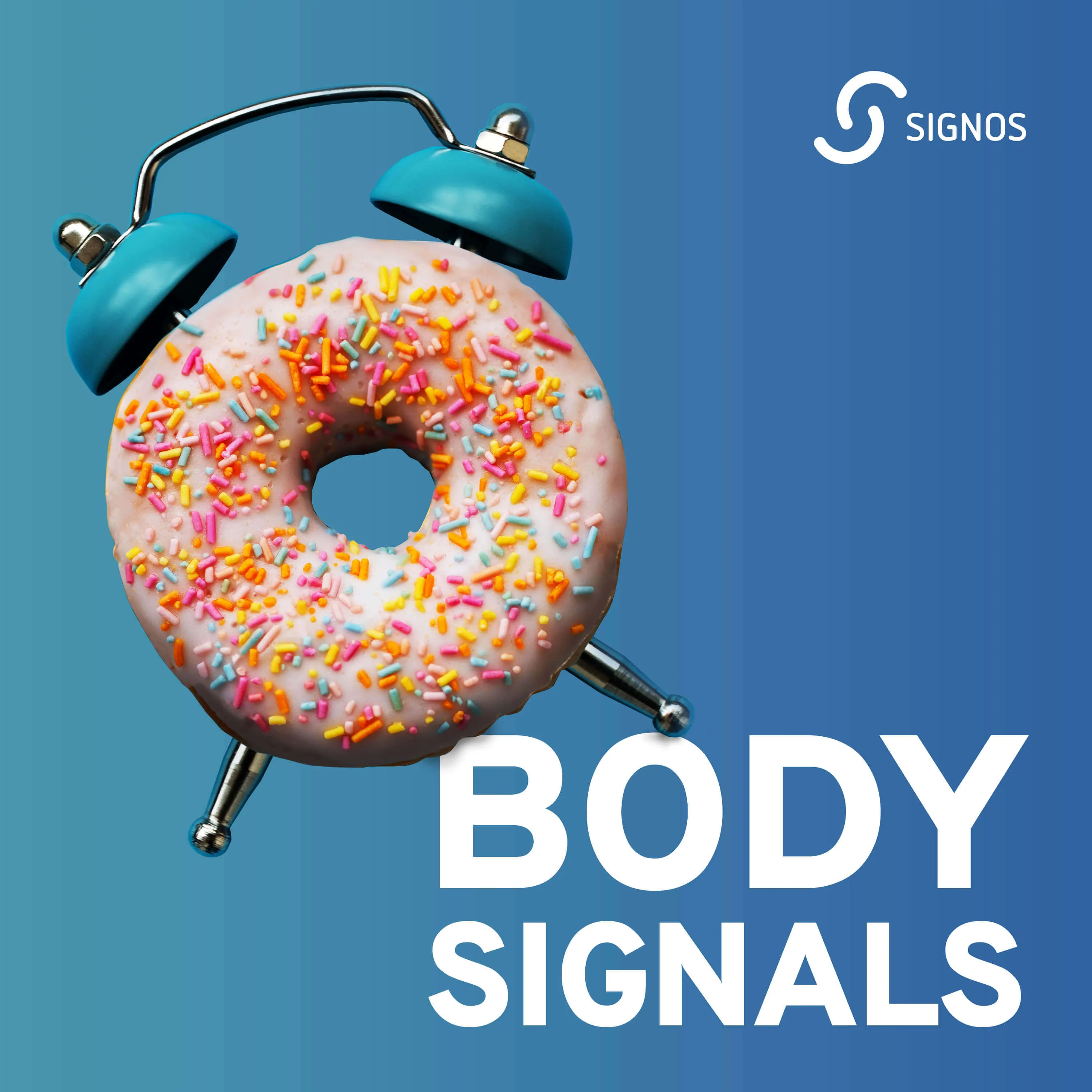The thyroid gland is a tiny but mighty endocrine gland located on the front of your neck. Its primary function is to control your metabolism by releasing thyroid hormone to regulate functions in the body like heart rate, digestion, and energy production.
Hypo means "under" or "less than," so hypothyroidism means your thyroid gland is making less thyroid hormone than it should, slowing down metabolic processes that control energy, weight, body temperature, and more. The result is a constellation of symptoms that can significantly impact your day-to-day life.
Thyroid hormone-replacement medications are prescribed to treat hypothyroidism, but lifestyle plays an equally important role—especially diet. Nutrition can help or hinder your thyroid function and overall health. Here are the best and worst foods to eat when you have hypothyroidism.
What is Hypothyroidism?
Hypothyroidism is the most common endocrine disorder, affecting an estimated 5 percent of the population, with another 5 percent likely undiagnosed. Women are more likely to have hypothyroidism—8 to 9 times more than men.1
The primary cause of an underactive thyroid is Hashimoto's hypothyroidism.1 Hashimoto's is an autoimmune condition, meaning the body's immune system attacks the thyroid gland instead of protecting it. This leads to inflammation and irreversible damage to the thyroid gland.
Other reasons for hypothyroidism include radiation, surgery, pregnancy, certain medications, and a diet lacking in iodine.
A lot of the symptoms of hypothyroidism can be dismissed because they can start off vague or be attributed to other health conditions, including:
- Difficulty losing weight or weight gain
- Fatigue
- Dry thinning, hair
- Constipation
- Feeling cold
- Depression
- Muscle weakness, cramps, and aches
- Dry skin
- Elevated blood cholesterol levels
- Puffy face
- Impaired memory
- Infertility and menstrual cycle changes
If you have any of these symptoms, it's worth asking your healthcare provider for a full thyroid panel, including thyroid antibodies, to rule out Hashimoto's (you can have normal thyroid hormone levels and still have Hashimoto's).
{{mid-cta}}
Can Dietary Modifications Help With Hypothyroidism Symptoms?
Dietary modification can absolutely help with hypothyroidism symptoms. Nutrition is one of the first places to start when it comes to managing any chronic health condition, and sometimes food sensitivities or intolerances can address the root cause of the problem.
No single nutrient or food is the cause or cure for hypothyroidism, but a nutrient-dense diet that contains essential nutrients for thyroid health is a non-negotiable part of any hypothyroidism diet plan. Plus, diet can play a role in autoimmune conditions like Hashimoto's disease.
For example, dietary patterns that mimic a Mediterranean style—high in antioxidants from fruits, vegetables, legumes, healthy fats and oils, and fiber—are associated with lower rates of hypothyroidism. In contrast, a more western diet high in processed foods and sugar is associated with an increased risk.
Gut Health, Diet, and Hypothyroidism
There's also compelling research linking autoimmunity, nutrition, and gut health. Celiac and Hashimoto's often go hand-in-hand, and people with Hashimoto's are more likely to be diagnosed with celiac. But even non-celiac gluten sensitivity (NCGS) can trigger gut inflammation in some cases, which could contribute to Hashimoto's.
You may have heard the phrase "leaky gut" thrown around, but the actual name for leaky gut is intestinal permeability. Intestinal permeability means the spaces between the cells that line your digestive tract (called tight junctions) open up and allow particles—like bacteria, toxins, and undigested food—to "leak" out of the intestines into the bloodstream, where they can cause inflammation and eventually trigger an autoimmune response.
How does this all tie into your diet? An anti-inflammatory diet that promotes a balance of healthy bacteria keeps the gut healthy and reduces the likelihood that the gut lining becomes impaired. People with sensitivity to foods like gluten can also reduce inflammation and damage in the gut, reducing symptoms associated with Hashimoto's.
Not everyone with hypothyroidism needs to avoid gluten, but people with sensitivities may find it helpful. A healthy diet can also support weight loss. In other words, diet and nutrition are essential pieces of the puzzle regarding thyroid health.

Vital Nutrients For Healthy Thyroid Function
A nutrient-dense diet is a non-negotiable part of any hypothyroidism diet plan. Include these minerals and vitamins for thyroid health:
Iodine
Iodine is needed to make thyroid hormone, so without it, thyroid production is impaired. On the other hand, too much iodine can also trigger or worsen Hashimoto's, especially if selenium is low.
This delicate balance means that people with hypothyroidism or Hashimoto's need to be especially careful with overdoing iodine. Foods with iodine include sea vegetables (like kelp, wakame, and dulse), fish, iodized salt, and dairy.
Selenium
Your thyroid gland stores most of the selenium in your body where it's needed to convert inactive thyroid hormone T4 to the more active hormone T3.2
Selenium is also important for thyroid as it helps protect against autoimmune thyroiditis, possibly related to its antioxidant activity.12 It's found in Brazil nuts, seafood, poultry, and meat, but the amounts can depend on the soil's selenium content.
Zinc
Zinc works with other nutrients to produce thyroid hormone and convert it to an active form. Low zinc could contribute to hypothyroidism and symptoms like hair loss. 2 It's found in oysters, beef, poultry, beans, nuts, and seeds (especially pumpkin seeds).
Vitamin D
Low vitamin D status is linked to hypothyroidism and autoimmunity. On the flip side, as vitamin D levels increase, thyroid antibodies and overall hypothyroidism risk significantly drop. 2 You can find vitamin D in fortified foods like dairy, eggs, or plant-based milk, but sunshine (or supplements) is the best way to get enough.
Magnesium
Low magnesium is linked to an increased risk of Hashimoto's, worsening symptoms related to high thyroid antibodies, and hypothyroidism. It's found in dark chocolate, pumpkin seeds, yogurt, beans, and leafy greens.
9 Foods to Eat With Hypothyroidism
1. Nuts and seeds: Brazil nuts, sunflower seeds, flax seeds, pumpkin seeds, chia seeds
2. Grass-fed meat and wild-caught fish: Beef, chicken, liver, sardines, salmon
3. Legumes: Lentils, black beans, kidney beans
4. Vegetables: Arugula, broccoli, Brussels sprouts, cabbage, kale, spinach
5. Fruit: Bananas, berries, apples, melons, oranges
6. Probiotic-rich foods: Fermented vegetables, kombucha, kefir, natto, miso
7. Gluten-free whole grains and starches: Millet, quinoa, rice, sweet potato, squash
8. Healthy fats: Avocados, coconuts and coconut oil, olive oil, ghee
9. Herbs and spices: Basil, ginger, turmeric, cinnamon

3 Foods You Should Try to Minimize or Avoid
1. Problematic or trigger foods
As mentioned above, foods or ingredients like gluten can exacerbate food sensitivities and make symptoms worse. Food sensitivities differ for everyone, so you'll need to experiment or try an elimination diet to see what works for you (and reach out for help from a professional if needed).
2. Alcohol
Alcohol and hypothyroidism don't mix well as it can suppress thyroid function and potentially make symptoms worse. If you do drink, stick to moderate amounts and enjoy only on occasion.
3. Added sugar
Thyroid hormone plays a role in blood sugar balance, so added sugar can further disrupt metabolism and contribute to symptoms like fatigue, brain fog, and weight gain. Limit sugary foods and beverages, including those with natural sugars like honey or agave.
Quick note: You may have heard you should completely avoid certain vegetables like kale, broccoli, collards, and spinach when you have hypothyroidism because they can act as goitrogens. Goitrogens can potentially interfere with thyroid function and be a problem if eaten in excess.
But unless you eat pounds of these foods and drink kale juice all day long, having a serving or two of these foods is usually ok (and cooking reduces the amount of goitrogenic compounds even more).
Sample Diet Plan For Hypothyroidism
Need a little inspiration to get started? Try this sample diet plan for hypothyroidism.
Keep in mind that everyone has different calorie needs, so serving sizes aren't included. This plan includes gluten-free options, but if gluten isn't a problem for you, feel free to swap out bread for your favorite low-glycemic option.

Final Nutrition Tips to Support Hypothyroidism
If all of the above leaves you feeling a little overwhelmed, keep these big-picture tips in mind:
Focus on what you can add.
Instead of focusing on what you have to cut out, look at what you can add. Fill your diet with nutrient-rich whole foods to nourish your thyroid with essential nutrients.
Keep medication timing in mind.
Take thyroid medication as prescribed, usually on an empty stomach, 30 to 60 minutes before your first meal. This allows for optimal absorption and prevents potential drug-food interactions.
Even if you do everything "right" with diet, you still may need medication because your thyroid is no longer working as it should, and that's ok. Diet can still help manage thyroid symptoms and keep medication needs lower.
Work with a healthcare professional
Consider working with a health professional if you struggle to make diet and lifestyle changes on your own or aren't sure about food sensitivities. They can guide you with a plan personalized to you.
Topics discussed in this article:
References
- Chiovato, L., Magri, F., & Carlé, A. (2019). Hypothyroidism in Context: Where We've Been and Where We're Going. Advances in therapy, 36(Suppl 2), 47–58. https://doi.org/10.1007/s12325-019-01080-8
- Bellastella, G., Scappaticcio, L., Caiazzo, F., Tomasuolo, M., Carotenuto, R., Caputo, M., Arena, S., Caruso, P., Maiorino, M. I., & Esposito, K. (2022). Mediterranean Diet and Thyroid: An Interesting Alliance. Nutrients, 14(19), 4130. https://doi.org/10.3390/nu14194130
- Roy, A., Laszkowska, M., Sundström, J., Lebwohl, B., Green, P. H., Kämpe, O., & Ludvigsson, J. F. (2016). Prevalence of Celiac Disease in Patients with Autoimmune Thyroid Disease: A Meta-Analysis. Thyroid : official journal of the American Thyroid Association, 26(7), 880–890. https://doi.org/10.1089/thy.2016.0108
- Losurdo, G., Principi, M., Iannone, A., Amoruso, A., Ierardi, E., Di Leo, A., & Barone, M. (2018). Extra-intestinal manifestations of non-celiac gluten sensitivity: An expanding paradigm. World journal of gastroenterology, 24(14), 1521–1530. https://doi.org/10.3748/wjg.v24.i14.1521
- Cayres, L. C. F., de Salis, L. V. V., Rodrigues, G. S. P., Lengert, A. V. H., Biondi, A. P. C., Sargentini, L. D. B., Brisotti, J. L., Gomes, E., & de Oliveira, G. L. V. (2021). Detection of Alterations in the Gut Microbiota and Intestinal Permeability in Patients With Hashimoto Thyroiditis. Frontiers in immunology, 12, 579140. https://doi.org/10.3389/fimmu.2021.579140
- Danailova, Y., Velikova, T., Nikolaev, G., Mitova, Z., Shinkov, A., Gagov, H., & Konakchieva, R. (2022). Nutritional Management of Thyroiditis of Hashimoto. International journal of molecular sciences, 23(9), 5144. https://doi.org/10.3390/ijms23095144
- Krysiak, R., Szkróbka, W., & Okopień, B. (2019). The Effect of Gluten-Free Diet on Thyroid Autoimmunity in Drug-Naïve Women with Hashimoto's Thyroiditis: A Pilot Study. Experimental and clinical endocrinology & diabetes : official journal, German Society of Endocrinology [and] German Diabetes Association, 127(7), 417–422. https://doi.org/10.1055/a-0653-7108
- Triggiani, V., Tafaro, E., Giagulli, V. A., Sabbà, C., Resta, F., Licchelli, B., & Guastamacchia, E. (2009). Role of iodine, selenium and other micronutrients in thyroid function and disorders. Endocrine, metabolic & immune disorders drug targets, 9(3), 277–294. https://doi.org/10.2174/187153009789044392
- Teti, C., Panciroli, M., Nazzari, E., Pesce, G., Mariotti, S., Olivieri, A., & Bagnasco, M. (2021). Iodoprophylaxis and thyroid autoimmunity: an update. Immunologic research, 69(2), 129–138. https://doi.org/10.1007/s12026-021-09192-6
- Severo, J. S., Morais, J. B. S., de Freitas, T. E. C., Andrade, A. L. P., Feitosa, M. M., Fontenelle, L. C., de Oliveira, A. R. S., Cruz, K. J. C., & do Nascimento Marreiro, D. (2019). The Role of Zinc in Thyroid Hormones Metabolism. International journal for vitamin and nutrition research. Internationale Zeitschrift fur Vitamin- und Ernahrungsforschung. Journal international de vitaminologie et de nutrition, 89(1-2), 80–88. https://doi.org/10.1024/0300-9831/a000262
- Appunni, S., Rubens, M., Ramamoorthy, V., Saxena, A., Tonse, R., Veledar, E., & McGranaghan, P. (2021). Association between vitamin D deficiency and hypothyroidism: results from the National Health and Nutrition Examination Survey (NHANES) 2007-2012. BMC endocrine disorders, 21(1), 224. https://doi.org/10.1186/s12902-021-00897-1
- Wang, K., Wei, H., Zhang, W., Li, Z., Ding, L., Yu, T., Tan, L., Liu, Y., Liu, T., Wang, H., Fan, Y., Zhang, P., Shan, Z., & Zhu, M. (2018). Severely low serum magnesium is associated with increased risks of positive anti-thyroglobulin antibody and hypothyroidism: A cross-sectional study. Scientific reports, 8(1), 9904. https://doi.org/10.1038/s41598-018-28362-5
- Balhara, Y. P., & Deb, K. S. (2013). Impact of alcohol use on thyroid function. Indian journal of endocrinology and metabolism, 17(4), 580–587. https://doi.org/10.4103/2230-8210.113724
- Babiker, A., Alawi, A., Al Atawi, M., & Al Alwan, I. (2020). The role of micronutrients in thyroid dysfunction. Sudanese journal of paediatrics, 20(1), 13–19. https://doi.org/10.24911/SJP.106-1587138942




.svg)










.svg)
.svg)
.svg)
.svg)
.svg)
.svg)
.svg)
